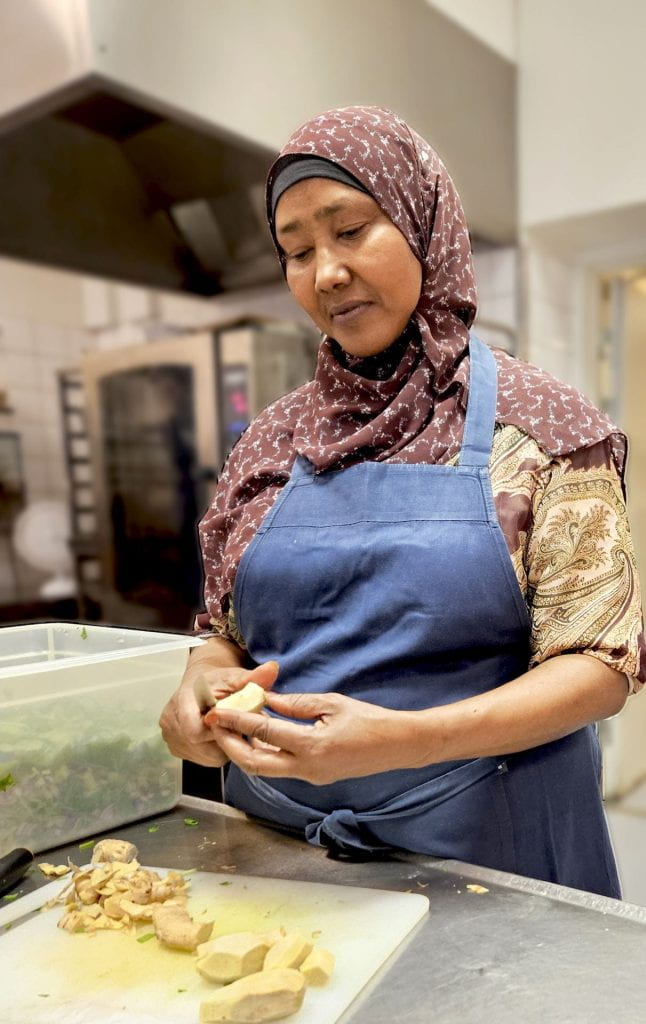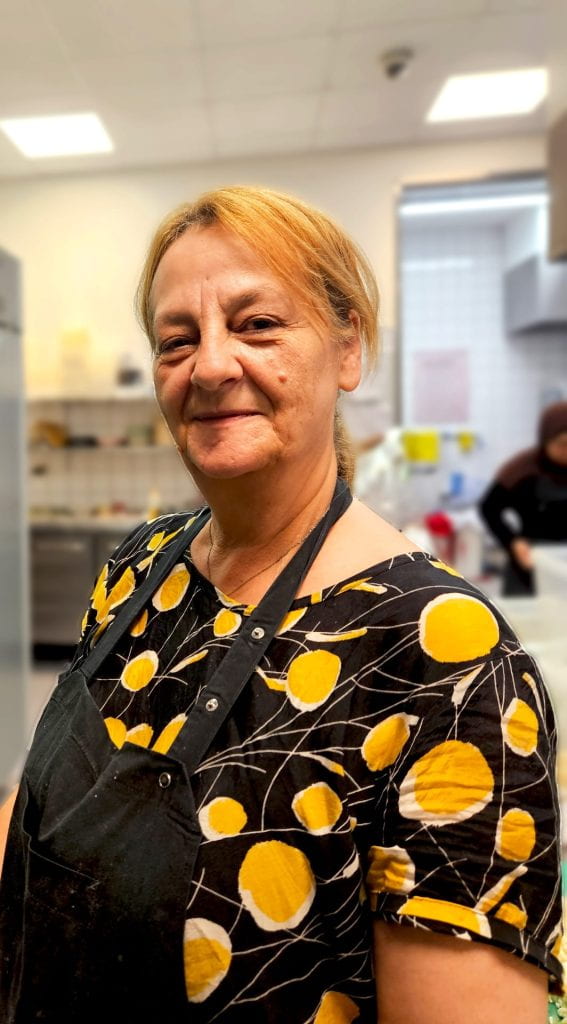Established in 1982, ‘Diversity Works’, one of Denmark’s oldest NGOs, marks its 41st year of service, providing job prospects, healthcare, and education to those in need. For many, the current climate of economic uncertainty, inequality, inflation, and war has led to an influx of immigration yin Denmark, as well as difficulties for minority Danes. Diversity Works operates with the focus to combat inequality and provide opportunities for all.

By Olivia Watts and Johanne Hanghøj Jørgensen
Following years of strict migration laws, and barriers to societal inclusion, the wider society faces many obstacles to being a citizen in Denmark. At a time of such financial pressure, Diversity Works’ social economy café and catering café ‘Send Flere Krydderier’ has been offering employment for minority ethnic women who are struggling to find work. In Diversity works annual public report Christina Stærk, a social worker at Send Flere Krydderier, says “The purpose is to help women with limited work experience enter the Danish labour market or to clarify their ability to work.”
At the core of Diversity Works is community and providing support to those vulnerable. According to Sofie Theede in the report. She is the Center’s activity manager, “People come here for many different reasons […] from a single mother who comes with her child to get help in the homework café, to a woman who is under such financial pressure that she is worried about being put out on the street.” Diversity Works has become somewhat of a home to many members of the community.
This was the case for employee of Diversity Works ‘Send Flere Krydderier,’ Fadimo Ismail. “I came to Denmark in 1990 with my son, who was two years old at the time. I came as an immigrant because there was a civil war in my country. I came to ‘ Invandrer kvindeceneret’ (now Diversity Works) in 1993, I didn’t have any family here in Denmark, so I hoped to find some friends to become ’my family’. We would sew, cook dinner with each other and share the food,” she says. On talking about integrating into Danish society, Fadimo continues “it was hard—you have to learn a lot of stuff, many rules and which rights you have.”

According to the recent survey conducted by the Expat Insider Survey, in 2023, Denmark was pronounced one of the most difficult countries to settle in. In response, The Local DK specified that this is especially due to difficulties securing a job, with it being said that it “can take six to twelve months to secure a job as an international.”
Miberia Kiki from Kosovo is also an employee of Diversity Works ‘Send Flere Krydderier,’ she emphasizes how challenging securing a job can be: “I was working in a store, but then it went bankrupt [..] I tried to get a job again, but it was so hard. I was very young when I was working in the stores, it was hard. And in the end, I was tired. I did a lot of internships, for nearly three years, and I thought ‘Something has to happen’ so I teamed up with the municipality. They sent me on a course about kitchens, and after that, I got an internship at the immigrant women’s centre (now Diversity Works). I’m really happy here because I love talking to people, and you are always working with people, you are not alone. Here, there are different customers from all over the world, and I’ve learned about food cultures and other foods.”

Career opportunities like ‘Send Flere Krydderier’ are essential to ensuring all minority groups are included in society. As explained by its Tobias Vest Madsen in the annual report. He is head of culinary development at ‘Send Flere Krydderier,’ “is primarily about food, but just as much about creating a foundation where [these] women can regain self-confidence and believe in their own resources. After all it’s the women’s skills in cooking that are the foundation of our business.” With existing stories circulating on the rigidity of existing immigrants, it is important to have organisations like Diversity Works, ensuring every citizen has a place in Denmark.